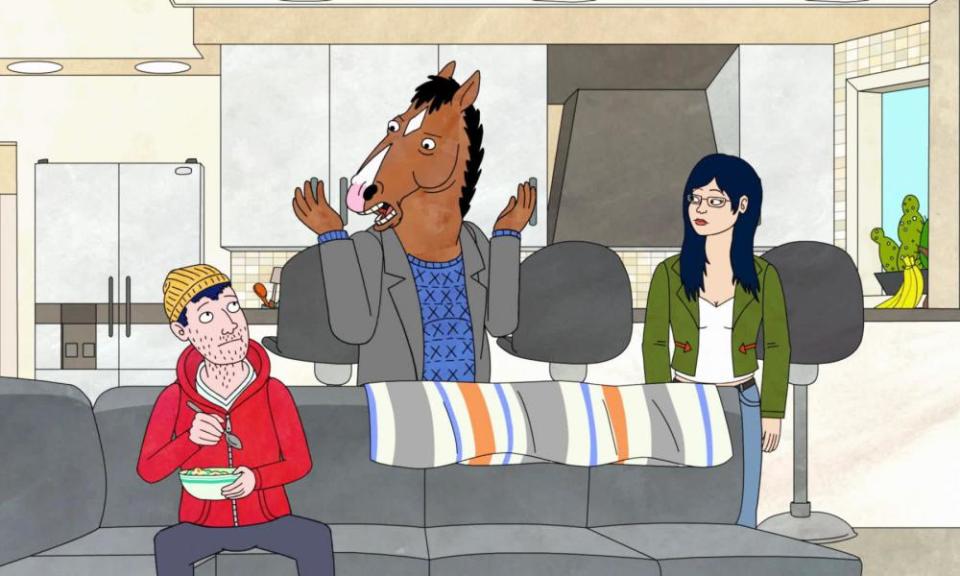David Baddiel: ‘Kids have a better sense of humour than they used to'

Like many, I began lockdown by bingeing on Tiger King, which remains one of the most extraordinary pieces of TV I’ve ever seen – although I’ve become disenchanted with the, ahem, lionisation of it since, particularly the reflexive mass-hatred of the only significant woman in it. Nonetheless, it’s a hilariously disturbing portrait of just how wrong a self-enclosed world can go.
I haven’t watched many films. I saw Once Upon a Time in Hollywood, which felt from another era. By which I mean, not the 1960s but from when it was made, pre-coronavirus – Tarantino’s retro worldview may now itself be retro. I also watched the extraordinary 2015 documentary about North Korea, Under the Sun, by the Russian film-maker Vitaly Mansky [now on Amazon Prime Video]. The film’s power comes from simply letting the camera run between scenes, thus showing the way the state handlers cack-handedly try and manufacture those scenes. It is intensely slow, but hilarious and heartbreaking.
I liked the BBC Two series Devs. God’s Dice, a play I wrote that was on in London last autumn, was born out of a sense of the miraculousness of quantum physics and its strange relationship to religion, and Devs touches on much of the same material. As someone obsessed in an extremely lay way with quantum physics, I was impressed by how much science Alex Garland managed to fit around the drama. I’m a sucker for a corporate tech thriller that can throw in – and not just in a “just make it sound impressive” way – many-worlds interpretation and the double-slit experiment.

But the big winner in our house has been Bojack Horseman. We’ve always been animation fans – Morwenna [Banks, Baddiel’s wife] is, of course, the voice of Mummy Pig in Peppa Pig – and one of the reasons I write kids’ books is that kids have much better senses of humour than they used to: a generation of children raised on The Simpsons and The Amazing World of Gumball can now appreciate proper funny at a much earlier age than those who were reared on The Magic Roundabout. But Bojack isn’t for kids (although I was introduced to it by my teenage son). It’s a meticulously written, at once cynical and heartfelt, long-form comic saga about the emptiness of fame and the impossibility of connection in a world of surfaces, all channelled through a horse who was a big sitcom star in the 90s. It confirms something I’ve thought for a very long time, which is that the greatest expression of TV and film as an art form is now happening in animation. Which, given that live-action actors are going to find it hard interacting on camera in the foreseeable future, may be no bad thing.

 Yahoo News
Yahoo News 
